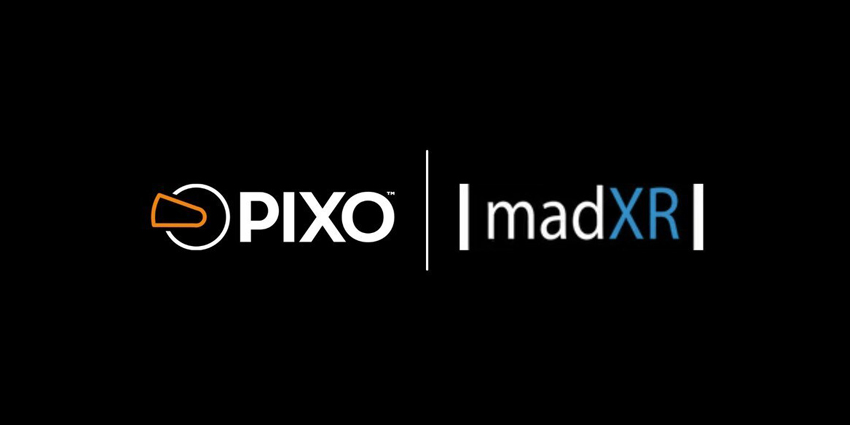Mark Zuckerberg’s keynote speech at Connect 2021 might have shot the term into the mainstream, but the metaverse isn’t a new idea.
The word was first coined in the early 1990s and the notion of an immersive digital reality separate from the physical world can be traced back to 80s video games.
Since the late 1970s, those belonging to the technology community have imagined the internet and its futuristic successor – which is a conglomeration of all the digital worlds and objects built across the decades. Now, in 2021, the metaverse is finally coming into its own.
In many ways, Facebook and its competitors aren’t building or inventing the metaverse – they are discovering it.
Snow Crash and Other Early Roots
The word metaverse is a portmanteau of the Greek term Meta and the English word universe. Meta in Greek is popularly used as a prefix to mean after or beyond, a use that continues on in the English language.
For example, terminology like metadata or metaphysics refer to something more than data or physics, often with a self-referential connotation.
The first recorded use of the word metaverse is in Neal Stephenson’s 1992 novel, Snow Crash.
In the novel, the protagonist Hiro moves in and out of a place called the metaverse, which appears to be a small-scale urban landscape created via code where users can have lifelike experiences.
Many of the traits of Stephenson’s metaverse are reflected in today’s terminology:
- The metaverse is three-dimensional
- The metaverse is a metaphor for the real-world
- Users can access the metaverse using goggles, much like today’s VR headsets
- Users experience the metaverse from a first-person perspective
- The virtual avatars of users are partially customisable
Interestingly, Snow Crash came just one year after the official birth of the internet in 1991. While the word metaverse remained limited to the technology community, innovations across the next few years laid the early foundations of what the metaverse is now poised to become in 2022 and beyond.
The 1990s saw the rise of blockchain in theoretical discussions and primitive conceptualisations of viable AI. across the 2000s, technology evolved in leaps and bounds to give birth to digital twin technology in 2002, and Second Life in 2003.
You could argue that Second Life was a metaverse before the metaverse was a “thing,” although it used different terminology.
Finally, in 2008, Satoshi Nakamoto came out with a whitepaper that would turn blockchain into an executable and usable technology.
In the next few years, books like Ready Player One, games like Pokémon Go, and trends like NFTs further blurred the lines between the virtual and the real – the core premise behind Snow Crash’s original metaverse.
Among the Top 10 Shortlist for Collins Dictionary’s Word of the Year
In 2021, the term metaverse is finally getting its moment in the sun. It was shortlisted by Collins Dictionary for its Word of the Year in 2021, among the ten words selected from this year’s rapidly evolving English lexicon.
Interestingly, it lost out to NFT, which is also a related technology for the metaverse.
Investments and non-interchangeable digital assets inside the VR world of the metaverse are NFTs or non-fungible tokens.
What Does Facebook Mean by the Word Metaverse?
If you asked the question “where does the word metaverse come from?” sometime in October or November of this year, the chances are that the answer is Facebook.
When Facebook announced its big rebrand at Connect, Mark Zuckerberg, Meta, CEO, announced that the company would be pivoting around the metaverse.
In fact, he used the word around 16 times in his speech, underscoring its role as the company explores user engagement beyond text, photos, and video.
We’ve gone from desktop to web to mobile; from text to photos to video. But this isn’t the end of the line. The next platform will be even more immersive — an embodied internet where you’re in the experience, not just looking at it.
We call this the metaverse, and it will touch every product we build – he said in his Founder’s Letter.
Therefore, like the original Greek etymology, Zuckerberg believes the metaverse will be something beyond today’s 2D social interactions.
4 Key Etymological Connotations of the Term
The origin and meaning of the term metaverse can be distilled into four connotations:
- It is a world “beyond” the current state of things – This could be beyond 2D, beyond our current Web 2.0., or beyond the physical world around us.
- It denotes plurality more than what’s visible to the eye – If there’s a metaverse, then the universe you inhabit isn’t the only one. The term encapsulates a sense of plurality apart from what’s physically tangible.
- It is a digital universe with exceptional verisimilitude – The thing about the metaverse is that it is also a verse. This means that it mirrors the physical universe we inhabit.
- It is a futuristic theory that calls up dystopian ideas – Both Snow Crash and Ready Player One offer the metaverse as an alternative to a dystopian physical reality. Questions around the metaverse’s relationship with reality and ethical factors cannot be ignored.
What Does the Metaverse Mean for You?
If you already use AR/VR games and software applications like Decentraland or Second Life, you have tried out a metaverse-like experience. Keep in mind that it is always the metaverse and not a metaverse.
In other words, the metaverse as envisioned by Neal Stephenson, Mark Zuckerberg, and others is a universal, unified, and interoperable 3D space that will bring together the many virtual worlds in existence today.
You can expect the rise of more VR apps, work in VR, and advanced ergonomic headsets in the next few years to make this vision a reality.
Since its origins in the 80s-90s, the metaverse has come a long way and is poised to become a viable technology product by 2035.
It is important to keep in mind what the word means, its connotations, and its potential (both positive and negative) to be able to navigate this new reality effectively.







